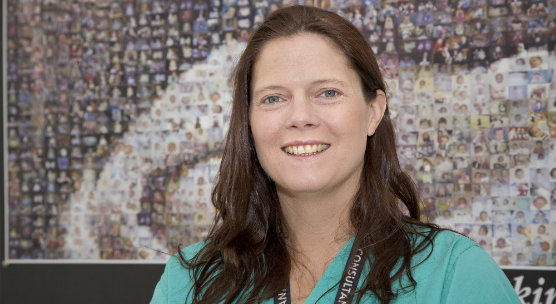First steps toward male infertility treatment
Published On Tue 28 Mar 2017 by Grant Hill

Scientists from the University of Dundee believe they have taken the first steps towards developing drugs to treat infertile men.
Infertility is a significant problem affecting tens of millions of couples worldwide, with around half of cases having a male factor either as a sole or contributory cause. It is known that asthenozoospermia (poor/dysfunctional sperm motility) is the commonest disorder in male infertility, yet there is no drug that men can currently take for it to improve the chances of conception.
As such, couples who require assistance to conceive need to rely on clinical treatments such as In vitro fertilisation (IVF) or intracytoplasmic sperm injection (ICSI), both of which are expensive, invasive and are not guaranteed to work.
While there is clearly an unmet need for alternative treatments for male subfertility, the time, effort and resources required for drug discovery are currently exorbitant. The cellular, physical and functional properties of human spermatozoa present unique challenges to researchers and the lack of an appropriate platform to analyse potential treatments further complicates the issue.
Now the Dundee team have developed and validated a high throughput screening (HTS) method that may help to find novel agents that improve sperm function. HTS automates the experimentation process to allow researchers to quickly identify active compounds, antibodies, or genes relevant to their work.
While a cure for male infertility remains some way off, the researchers, led by Dr Sarah Martins da Silva, believe their method has removed many of the barriers towards developing drugs to treat the condition.
“Male infertility is incredibly common but there is nothing we can currently prescribe in the vast majority of cases,” said Dr Martins da Silva. “The problem is that we really don't understand how sperm function. And because we don't really understand how they function, then we don't know how to correct sperm dysfunction either.
“The other issue is that sperm are absolutely unique cells, designed to survive outside the body and hugely specialised to swim, find and fertilise an egg. They are small and have virtually no cytoplasm, and the cell signalling pathways can be unlike other cells. As a result, sperm are incredibly challenging to study. We believe we have now taken the first steps towards helping millions of couples worldwide.”
It is known that alterations in intracellular calcium are fundamental to sperm function, including swimming and fertilisation, and that fluctuations in calcium are due, in large part, to a sperm-specific channel named CatSper (Cation channel of sperm).
In the absence of a known specific molecular or receptor target, compound library high-throughput screening (HTS) is an alternative approach that has developed in recent decades.
Dr Martins da Silva and her colleagues worked with the University’s Drug Discovery Unit (DDU) to create a high-throughput assay platform to monitor intracellular calcium responses in sperm as a surrogate for sperm motility.
“This enabled us to identify hit compounds, which we were able to test on sperm and saw improved functional motility,” continued Dr Martins da Silva. “We also saw enhanced functional motility when we tested two of the compounds on patient samples, which is exciting and hugely relevant for patients, albeit this is still very early days.”
As the CatSper channel is unique to sperm, identifying a therapeutic compound for it potentially avoids systemic side-effects, making these candidates very attractive both clinically and commercially.
Having concluded that HTS can robustly and efficiently identify novel compounds that increase intracellular calcium in human spermatozoa and improve function, the researchers propose to use it as a cornerstone to drive forward drug discovery for male subfertility.
The paper has been published online by the Human Reproduction journal.
For media enquiries contact:
Grant Hill
Press Officer
University of Dundee
Nethergate, Dundee, DD1 4HN
Tel: +44 (0)1382 384768
Mobile: 07854 953277
Email: g.hill@dundee.ac.uk